#florida baseball training
Text
5 Tips to Take Care While Hiring a Baseball Coach in Florida
Are you looking to hire a baseball coach for your athlete in Florida? Here are five tips to let you choose the perfect coach.
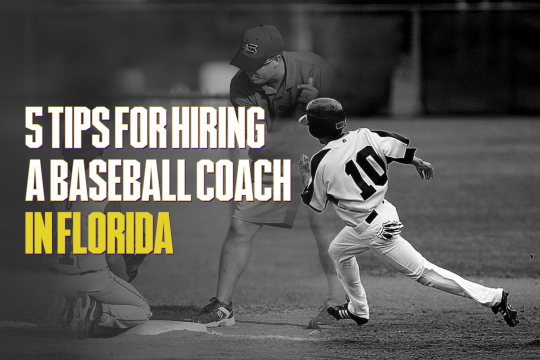
The Traditional Way
There’s a raging debate in baseball circles about which baseball coaching methodology is best for an aspiring athlete – the new or the traditional methodology. Without belittling the admirers of new school baseball coaching, we would say this: the traditional way has worked for far too long to be replaced by anything new!
Some things never change. The baseball coaching methodology is one of them. Even with the introduction of advanced technology to monitor and evaluate an athlete’s performance, baseball knowledge is best passed from coach to student-athlete. It’s a coaching methodology that has stood the test of time thanks to coaches who honor this ongoing tradition and teach the original fundamental technique taught and passed on from player to player.
Ted William, Tris Speaker, Mike Easler, Mo Vaughn – all became mentors to transfer their hard-earned baseball knowledge to young athletes. These sporting legends have taught their student-athletes everything from correct playing techniques to developing a winning mindset.
"This game is about mentality. Dogged, tough mentality, and if you don't have that, you can't be successful," Mo Vaughn.
Baseball is a tough sport. Young athletes looking to crack big league roasters can't rely on their skills alone. Positive mental attributes like dedication, discipline, and a never-say-die attitude make all the difference when it comes to separating the best from the rest. And who better to teach these attributes than the players-turned-coaches who have gone through the grind and made it big in MLB!
Here are five tips to help you decide on your next baseball coach in Florida.
1. Choose a baseball coach believing in the tradition of passing down baseball knowledge through generations.
“Never let your head hang down. Never give up and sit down and grieve. Find another way," Satchel Paige.
Coaches at premier baseball academies in Florida and nationwide base their coaching techniques on developing the player’s mind. They teach young baseball players ways to develop a strong mindset capable of accepting losses as part of the learning curve. It’s a methodology passed down through generations of legendary coaches and players. The fundamentals of technique are passed from one generation of players to another.
This process of transferring knowledge is found in a few other sports, and it has been going on for decades. The same philosophy applies to baseball coaches mentoring athletes online. When aspiring athlete attends a coaching session with traditional baseball coaches, they share in a wealth of knowledge accumulated through generations of brainstorming and toiling on the diamond.
2. Mindset building is vital!
"Even though you may not win the fight, you still gotta go," Mo Vaughn.
Baseball is a team sport, and you are only as good as your teammate. Individual talent can only take athletes so far. But if they learn to play for the team's goals, they become contributing members with a sense of responsibility. Traditional coaches want young baseball players to imbibe such qualities as initiative, selflessness, and camaraderie. They inspire young athletes to become leaders capable of leading by example.
Chicago Cubs Hall of Famer Mordecai Brown pitched with three fingers on his pitching hand. In the Cubs' 1908 World Series triumph, Brown won two games, including a shutout. Hack Wilson drove a record 191 runs in 1930 despite having a significant physical disadvantage compared to other athletes of the time. Jim Abbott and Chad Bentz cracked the MLB roasters despite having specially-abled hands. Freddy Sanchez became a .297 career hitter despite being born with foot difficulties. The list of baseball players overcoming disadvantages to attain baseball glory is endless. All these legends were able to touch glory because of being mentored by baseball coaches who worked on building their mindset.
3. Proper technique is at the core of succeeding in baseball.
“Never allow the fear of striking out keep you from playing the game!” Babe Ruth
A winning mindset and proper technique go hand in hand in shaping a young baseball player’s future. Mike Easler perfected Mo Vaughn’s hitting technique on Vaughn's path to MLB stardom. Simple things like grip, posture, and head position can make all the difference between winning and losing at the plate. That's why young athletes need a baseball coach willing to work on the finer aspects of their play.
Traditional baseball coaches want you to borrow from their experience. They discuss their triumphs and tribulations with student-athletes. They teach ways learned in the heat of battle. A great coach works on the strengths and weaknesses of their students, helping them realize their full potential.
4. Your athlete needs one-on-one sessions.
Where premier baseball coaching institutions like Vaughn Sports Academy stand out is in their tailored approach. Coaches at these top-notch coaching facilities work with individual athletes, giving them the guidance they need, all while working on their strengths and weaknesses. Each player learns to rely on their mentor on and off the field. It’s a bond forged for life. And this is precisely what you need to look for in your baseball coach. Is he ready to mentor individual athletes and conduct one-on-one sessions?
Legends like Mike Easler and Mo Vaughn are so famous because they spend a lot of time with their student-athletes, knowing and advising them on tackling challenges in baseball and life.
5. Strength and stamina building is key to succeeding in baseball.
From the Little League to MLB, each game of baseball tests the athleticism of individual players. The best baseball coaches work on things like player fitness, muscle group activation, and stamina building to help athletes succeed on the diamond. They instill a strong work ethic in their student-athletes to prepare them for challenges on and off the field. MLB legends like Mo Vaughn touched glory because they were able to match their mental toughness with physical prowess. And this is only possible under the able guidance of a traditional baseball coach.
If you are an aspiring player looking to crack a big-league club roaster, you need a traditional baseball coach in Florida. And what’s a better place to find such a coach than Vaughn Sports Academy?
#baseball academy#baseballcoach#Vaughnsportsacademy#baseball training#baseball coach florida#florida baseball training
0 notes
Text

71 notes
·
View notes
Text
its really the way zito talks about the cats that makes me wanna cry
MLB Network | 8.14.24 (x)
#bill zito#aleksander barkov#matthew tkachuk#florida panthers#yeah zito was talking about matthew before this#and i love how when asked about sasha he also brings him into the praise train hes conducting along#sometimes i forget morosi is both a mlb and nhl correspodent (i associate him more with baseball)#so i just get jumpscared when he talks hockey#zito jokingly saying he'll up sashas minutes LMAO#he loves his kitty cats so much
18 notes
·
View notes
Note
if someone gave you 1000 dollars , what pieces of cardinals merch would you spend it on ?
ooh that's rly hard
i would probably buy donovan and nootbaar jerseys, more baseball cards (i want to get a nootbaar card ((specifically a wbc card)) so bad), and probably a cardinals letterman jacket type thing
then i would buy this nootbaar bobble head bc its literally my favorite thing ever

#idk how much that would total up too but that's rly all i want#i do want to go to spring training game down in florida tho#tysm for the ask!#st louis cardinals#baseball#mlb baseball#brendan donovan#lars nootbaar
2 notes
·
View notes
Text
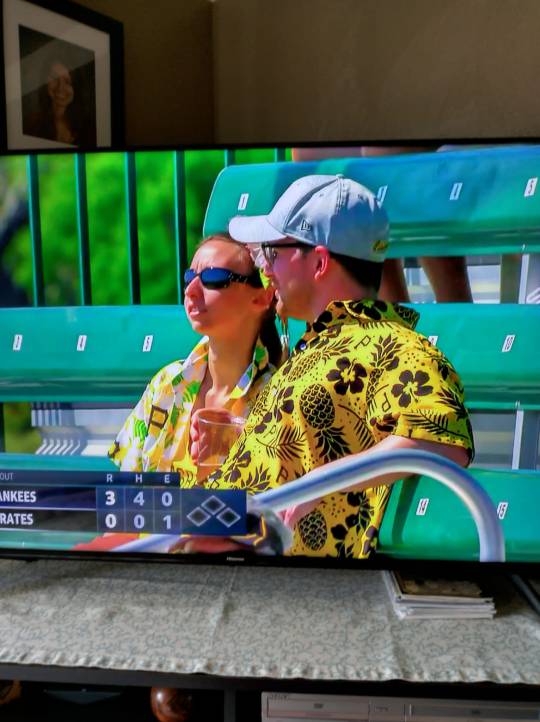
Made the Spring Training TV coverage!
#me n my dude#pirates#pittsburgh pirates#sportsnet#on TV#mlb#baseball#bradenton#florida#my mom sent me this lol at my high school senior photo on the wall#me at spring training 23
5 notes
·
View notes
Text
Pitchers and catchers report today and life is good again. LET'S GO CARDS!!!!

0 notes
Text
Florida Spring Training Party Stripper Service (305)767-4688 Palm Beach Strippers + Miami Strippers
FLORIDA SPRING TRAINING STRIPPERS & TOPLESS BARTENDERS ; COMING TO PALM BEACH / MIAMI FOR SPRING TRAINING ?
Our services include strippers for bachelor parties, topless bartenders and topless poker dealers.
In addition to bachelor parties, the strippers are also available for birthdays, spring training, yacht charters, golf events, fraternity parties, pool parties, poker night, sports parties,…

View On WordPress
#baseball#FL Spring Training#Florida#Fort Lauderdale#miami#Miami Strippers#palm beach#Spring Training#Spring Training Strippers
1 note
·
View note
Text
Take Me Out - Part One

Pairing: MLB player!Schlatt x gn!sideline reporter!reader
Word Count: 1.6k
Summary: Schlatt is the new first baseman for the New York Mets, and you’re the team’s new sideline reporter.
Content: Fluff!
A/N: I went with the Mets over the Yankees because a.) I’m a Red Sox fan, and b.) the Yankees are strict and only allow mustaches (long live the chops). Enjoy! :)

You feel like a kid on the first day of school. You’ve got that nervous, butterflies-in-your-stomach kind of feeling, but in a good way.
It’s your first official day as the sideline reporter for the New York Mets, and you couldn’t be more excited. All those long nights of studying, all your hard work to obtain your communications degree, have finally paid off.
You can’t help the grin that spreads across your face as you enter Clover Park for the first time. You’re in beautiful Port St. Lucie, Florida, and Spring Training is just getting underway. The smell of freshly-cut grass hangs in the air as you watch the players running drills on the field.
It’s here, as you speak to a member of the production team near the dugout, that you catch your first glimpse of him.
His laugh is what you hear first. Instinctively, you turn towards the sound, and that’s when you see him. He’s standing near first base, facing away from you, showing off the number 99 that covers his broad back.
Schlatt, everyone calls him, despite the surname stitched across the back of his jersey. His reputation precedes him. Everyone has heard the scouting reports, seen the viral videos passed around social media. In the minor leagues, he’s been known for his antics, taunting runners on the opposing team when they reach him at first base. It’s his first year being called up to the majors, and he’s one of the big stories for the team, the player to watch.
You’ve done your homework. You know all about Schlatt and his rather colorful personality. He’s certainly one of the more animated players in the sport, always fired up after a solid hit or a particularly impressive defensive play. He’s cocky, and, honestly, he has every right to be. He’s the Mets’ number one prospect, an above-average first baseman and strong power hitter. You know he’s going to be a handful in interviews, but you’re up for the challenge.
You can’t tell from this angle, but you know that if Schlatt were to turn around, you’d see the infamous mutton chops. Second to his spectacular playing ability, his unusual facial hair has been one of his defining characteristics since he was first drafted. Love it or hate it, it gets the fans talking, keeping that oh-so important spotlight on him.
You’re pulled out of your musings by a shout of, “Look out!” followed by a baseball whizzing past your head, narrowly avoiding you. You look to the field to see a few players standing around sheepishly.
“You okay?” To your surprise, it’s Schlatt who turns to ask you.
You give him a thumbs up. “All good,” you call out to him.
With a satisfied nod, he turns back to face the field.
It’s going to be an interesting season, you think.

You’re packed into the press room like sardines, shoulder-to-shoulder with fellow reporters. You all crowd around the podium where Schlatt sits, an array of microphones and cell phones in front of his face to catch his every word.
The press conference begins, and you’re called upon to ask the first question.
You open your mouth to speak.
Before you can get a word out, an older, male reporter begins talking over you. “What do you think—”
“Hey,” Schlatt cuts the reporter off sharply. “Let ‘em speak.” He gestures to you.
You feel your cheeks heat as seemingly every pair of eyes in the room turns towards you. You take a breath, then, as calmly as you can, ask your question: “What’s your takeaway from day one of Spring Training?”
Schlatt hums thoughtfully before answering, “That we look good out there, but we still have a lot of work to do before we’re ready for Opening Day.” He leans back a little in his chair and adjusts his cap. “That all?”
“One more thing: got any advice for a rookie reporter, as a rookie yourself?”
He grins wide. “Just enjoy it. We’re in the big leagues, baby!” he whoops, and the crowd erupts in laughter and scattered applause.
Before moving onto the next reporter, you swear Schlatt shoots a wink in your direction.

Spring Training flies by. Before you know it, you’re on a plane to New York for Opening Day. The sun is shining bright on Citi Field, helping to warm the chilly air.
You’re trying your best to soak it all in. This is what you’ve dreamed of for so long, and you want to enjoy every moment of it.
What an exciting Opening Day it turns out to be. The Mets and Phillies have gone back and forth, earning runs and keeping the score close throughout the game.
It’s now the bottom of the ninth, and the teams are tied three-to-three. There are two outs, no one on base, and Schlatt is up at bat. The count is full—three balls, two strikes. It all comes down to the next pitch.
You watch with bated breath as the Phillies pitcher throws a blazing fastball towards the plate. Schlatt swings the bat, and—CRACK! Just from the sound, you know it’s gone, and Schlatt does, too. He stands in the batter’s box for a few moments, watching the ball sail into the stands, before beginning his victory trot around the bases.
The crowd is going absolutely crazy. Lights are flashing all around, and music is blaring through the stadium speakers. The Mets dugout empties to meet Schlatt at home plate, where they convene in a huge group, shouting and high-fiving one another.
As the celebration on the field dwindles and players are headed off the field, you’re able to get Schlatt’s attention for a post-game interview. You can hear Gary, the announcer, in your ear, setting it up for the viewers at home.
“Schlatt!” you have to practically yell over the crowd. “That was amazing! What’s going through your mind right now?”
He’s breathing heavily, standing with his hands on his hips and leaning in to hear you better.
You think he starts to talk, but you’re suddenly doused in ice-cold liquid. You gasp and instinctively try to back away, but it’s too late. You realize, belatedly, that another Mets player has dumped the Gatorade cooler in celebration, but seems to have missed his mark.
“What the fuck, man?!” Schlatt shouts at his teammate, instinctively putting an arm around your shoulder, as if to shield you from another onslaught.
You shiver, not completely sure if it’s from the unexpected contact or the fact that you’re soaking wet in New York in early April. Maybe it’s a little bit of both.
The station must have cut back to the booth by now. At the very least, the audio will have been muted momentarily when Schlatt swore. Still, you’re pretty sure that, even though the camera is there, it’s not broadcasting you in all your drowned rat glory.
“Fuckin’ idiot,” Schlatt mutters to himself before focusing his attention on you. “Are you alright? Lemme get you a towel.”
“Oh, it’s fine,” you try to tell him, but he’s already jogging towards the dugout and returning moments later with a clean towel, ironically emblazoned with the Gatorade logo.
“Thank you,” you say, taking the towel and attempting, maybe in vain, to dry yourself off. You’re at least able to get the worst of it so there is no longer Gatorade running into your eyes, which is an improvement.
Schlatt crosses his arms and shakes his head. “I’m sorry about him.”
To be honest, you’re surprised he’s still here, still talking to you. You figured he’d want to get out of here as quickly as possible, but here he stands, looking genuinely concerned.
“It’s alright,” you try to brush it off.
“No, it’s not,” he insists. “I’ll talk to him, make sure it doesn’t happen again.”
You smile appreciatively. “Thank you,” you say again.
He smiles back at you softly. It’s so unlike him, you think—or, at least, so unlike the version of himself that he presents on the field and in interviews. It’s like you’re getting a peek at the real Schlatt, the man behind the persona.
You’re whisked off the field soon after. The production team assures you that you don’t have to stick around for the post-game press conferences, insisting that you go home and get cleaned up, for which you’re very grateful.
One very uncomfortable (but thankfully short) walk later, you’re back at your apartment. You quickly peel off your ruined outfit and hop in the shower, eager to wash off the day (and the Gatorade).
Soon, you’re curled up on the couch, cozy in your pajamas. It’s then that you feel your phone buzz, pulling it out of your pocket to reveal a wall of notifications. Confused, you unlock your phone, trying to make sense of the influx of Twitter mentions.
You nearly drop your phone when you open Twitter.
There, on your screen, is a video of you, microphone in hand as you begin interviewing Schlatt, before the Gatorade shower interrupts you both. The video doesn’t end there, though. You watch in disbelief as Schlatt puts his arm around you and continues talking to you, unaware that the camera is still rolling. Sure, there are a few moments where the audio is muted to cover up Schlatt’s f-bombs, but it appears that SNY aired your entire interaction with Schlatt.
You scroll down, eyebrows raising as you read through the replies. There are screenshots of Schlatt with his arm around you, followed by incomprehensible strings of letters and an impressive amount of emojis. You don’t really know what to make of it, and you try to put it out of your mind as you get up to make yourself dinner.
An hour or so later, you get a text from an unknown number:
can we talk?
A second message comes through moments later:
it’s schlatt

A/N: Thank you so much for reading! Let me know what you think! :)
222 notes
·
View notes
Text
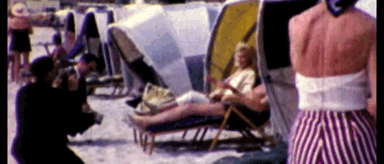

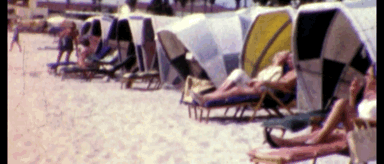


Marilyn Monroe and ex-husband Joe DiMaggio relaxing by the beach in Florida, March 1961 :
“I came down here for some rest, some sun and to visit Joe”. "We're friends," said Joe DiMaggio. "We're friends." echoed Marilyn Monroe in her soft sigh. The "friends." who are sharing a beach cabana and have nearby hotel rooms at this Gulf Coast resort, declined to elaborate. It was enough to make DiMaggio temporarily abandon baseball. Until Miss Monroe flew to Florida, DiMaggio had been assisting at the Yankees spring training camp in nearby St. Petersburg.
526 notes
·
View notes
Text

Welcome back to another post for the directory of fic recs on my blog! If you would like a specific theme or trope, let me know!
As always, these are all fics I have read and loved, not all the fics out there. You can find more University/College AU fics here!
**This post will be updated as I have more fics in this theme to recommend!**
rather be sad with you (than anywhere away from you) || @coffeehazza || 145.9k
College AU, Roommates, Hurt/Comfort, Depression, Mild Angst, Friends to Lovers
sunshine, baby! || @harruandlou || 106.5k **
Strangers to Friends to Lovers, Friends with Benefits, College AU, Florida, Swimmer Harry, Law Student Louis, Olympics
knock, knock, I love you || beautlouis || 86k
College AU, Virgin Harry, Fluff
Flash Back to Me || @mason-conaway || 73k
Amnesia AU, Therapy, Established Relationship, Falling in Love (again), College AU, Slow Burn, Fluff and Light Angst
The First Year || @parmahamlarrie || 46.9k
Uni AU, Strangers to Friends to Lovers, Hurt/Comfort, Badboy Louis, Soft Harry
Play Pretend, Find a Friend? || @angelichl || 40.2k
College AU, Fake Relationship, Coming Out, Mild Homophobia
Just Tell Me the Song and I’ll Sing It || myownspark || 39.9k
College AU, Baseball Player Harry, Romantic Gestures
voicemail sings a wreck || @falsegoodnight || 37k
Omegaverse, College AU, American AU, Enemies to Lovers, Frat AU
Listen To Your Heart || @chloehl10 || 35k
Deaf Harry, University AU, Childhood Friends to Lovers
with nothing but your t-shirt on || crybaby || 34.6k
Camboy Harry, College AU, Daddy Kink
Tell Them We’re Like Magnets || @nobodymoves || 31.3k
Girl Direction, College!AU, Friends to Lovers, Oblivious Idiots
secrets don’t make friends || @thedevilinmybrain || 30.2k
5 Times Fic, Established Relationship, College AU, Dom/Sub, Service Kink
Introduction to Dynamics || @juliusschmidt || 29.1k
Omegaverse, Omega Louis, Presenting, Coming of Age, Uni AU, Strangers to Friends to Lovers
never been a fan of change, but we're still the same || @onlythebravest || 27.1k
Omegaverse, Friends to Lovers, College AU, Hurt/Comfort, Drops, Nesting
if you keep holding me this way || thepriestthinksitsthedevil || 22.8k
College AU, Dom/Sub, Friends to Lovers (kinda)
taken by lust’s strange inhumanity || @larrydoinglaundry || 20.6k
Omegaverse, Alpha Louis, Omega Harry, College AU, Frat Brother Louis, Intersex Omega, Virgin Harry
your lips in the low light || @givesuethemoon || 20.6k
College AU, Frat Boy Louis, Art Student Harry, Established Relationship, Halloween Party, Angst
Knew It As Soon As I Felt It || fondlyrainbows || 20k
Girl Direction, Lesbians, College AU, Getting Together, Fluff and Smut
Funny How The Stars Crossed Right || @loveislarryislove || 17.9k
College AU, Photography Student Louis, Vet Student Harry
tonight’s not over (come over and stay) || @adoredontour || 17k
Famous Harry, College Student Louis, Lots of Fluff
Your Eyes, For Me Series || Idzzdi || 16.8k
Blind Louis, Sassy Louis, Strangers to Lovers, College AU
Stumbling Into Your Arms ABO verse || @sunshineandthemoonlight || 11.3k - 2 parts
A/B/O, College AU, Train AU, Fluff
think i’ll take my chances || trackfive || 12.8k
Sick Fic, Established Relationship, University AU, Fluff
Where Do We Go Now || @jaerie || 10.6k **
Omegaverse, Alpha Harry, Omega Louis, College Au, Roommates to Lovers, Enemies to Lovers, Human World
edible stars || @solitudeandchaos || 10.7k
Friends to Lovers, College AU, Light Dom/Sub
everything I can arrange, every part of me you change || orphan_account || 10k
College AU, Friends to Lovers
my heart's against your chest, your lips pressed to my neck (I'm in love now) || @bottomhaztoplou || 8.8k
A/B/O, College AU, Courting, Friends to Lovers, Roommates
That Should Be Me || @kenniewen || 8.6k
College AU, Dom/Sub
Draw || dolce_piccante || 8.3k
Nude Modeling, Uni AU
bright lights (she’s fading) || @loveloveolivia || 8k
PWP, Girl Direction, College AU
Traffic Light || @dinosaursmate || 7.1k
College AU, Friends with Benefits
You and Me Got a Whole Lot of Chemistry || @flamboyantommo || 6.9k
Friends with Benefits, College AU
when we get intimate || rainblou || 6.5k
Omegaverse, College AU, Ace Harry, Nesting
Use Your Words || zedi || 6.5k
University AU, Jock Louis, Flower Child Harry
I’m sticking to you like glue || peanutbutterapple || 6.2k
College AU, Sick Fic, Halloween, Fluff
Congratulations, it's a boy! || lovewasaprettylie || 6.2k
Gender Dysphoria, Genderqueer Harry, College AU, Friends to Lovers
Beep the Horn || @flamboyantommo || 5.9k
Halloween Fic, Friends to Lovers, Roommates, College/Uni AU
Take My Hand, Dumbass || @londonfoginacup || 5.9k **
Omegaverse, Alpha Harry, Omega Louis, Roommates AU, College AU, Enemies to Lovers
I’ll be There || @allwaswell16 || 5k
Uni AU, Sick Louis, Mild Hurt/Comfort, Enemies to Lovers
Take Care || everysingleday || 4.8k
College AU, Service Top Louis, Established Relationship
With All My Surrendered Hearts || @softandslow || 4.8k
Established Relationship, College AU, Long Distance
Green Coffee and Morning People || InsightfulInsomniac || 3.7k
College AU, Meet-Cute, Coffee
The Twenty Four Hour Cafe || @londonfoginacup || 3k
Uni AU, Coffee Shop AU
Delicate || @fallinglikethis || 1.4k
College AU, Punk Louis, Nerd Harry, Trapped in Elevator
#tracksintheam#trackinghappily#trackinghome#1dsource#fic rec#fic rec list#larry fic rec#my fic rec lists#college au#uni au
123 notes
·
View notes
Text
5 Reasons to Choose VSA as Your Athlete's Baseball Training Academy
As a parent, you want to give your children opportunities that nurture their talents, build their character, and prepare them for the future. If you're looking for the best baseball academy in Boca Raton, Florida, Vaughn Sports Academy (VSA) is an exceptional choice. Here are five compelling reasons VSA should be your top pick when selecting baseball academies for your young athlete.
Top-tier coaching staff
Vaughn Sports Academy is renowned for its exceptional coaching staff, which is comprised of former professional players and seasoned MLB coaches who bring experience and expertise to the academy. These coaches are skilled in teaching the technical aspects of baseball, such as batting and pitching, and fostering the mental and emotional development of young athletes.
Professional baseball coaches like Mike Easler, Omar Moreno, Ben Rivera, Wally Horsman, Vic Gutierrez, and Yamid Haad have all played at the highest levels and now dedicate their time to mentoring the next generation of baseball stars. Their commitment to high-quality instruction ensures that your child will receive Major League-level baseball training in Florida.

Comprehensive training program
At VSA, baseball training goes beyond just playing the game. The academy offers a holistic approach to player development that encompasses physical conditioning, mental toughness, and skill refinement. The state-of-the-art baseball facility in Boca Raton includes multiple batting cages, pitching machines, and a fully equipped gym for high-performance training. This environment is designed to help athletes develop strength, agility, and resilience.
Moreover, Vaughn Sports Academy strongly emphasizes correct mechanics to ensure that players can perform consistently and at their best. Whether your child is working on their swing, pitching form, or fielding techniques, VSA's comprehensive programs are tailored to help them succeed on and off the field.
Personalized coaching and small group sessions
Vaughn Sports Academy is committed to personalized, one-to-one baseball coaching. The academy limits the number of participants in its baseball camps to ensure that each athlete receives individual attention and tailored instruction. This approach allows coaches to identify and address each player's unique strengths and areas for improvement.
The close-knit environment offered by in-person coaching and baseball camps fosters strong relationships between coaches and athletes, ensuring your child feels supported and motivated. This personalized coaching is key in helping young players reach their full potential and stand out to baseball scouts and recruiters.
Emphasis on character-building and teamwork
Vaughn Sports Academy’s staff understands that succeeding as an athlete involves more than just physical skills. The academy strongly emphasizes building character, teamwork, and sportsmanship. Through its baseball programs, young athletes learn the importance of discipline, hard work, and perseverance.
Athletes are taught to handle pressure, overcome setbacks, and maintain a positive attitude, both on and off the baseball diamond. These values are integral to VSA's training philosophy and help develop well-rounded individuals prepared for life's challenges. Parents can rest assured that their children are becoming better baseball players and better people.
Support for college recruitment
Playing collegiate baseball is an excellent opportunity for young athletes to continue their baseball careers while receiving a top-notch education. Vaughn Sports Academy can increase high-school-age baseball players' chances of getting recruited by college coaches and scouts by providing valuable advice and helping showcase their talents and athleticism.

In particular, the baseball academy connects young players with former scouts who have expertise in college recruitment. These connections can provide valuable insights into the recruitment process, helping your child stand out among other aspiring baseball players. VSA can also help create highlight reels and player profiles that showcase your child's abilities and achievements, making them attractive prospects for college teams.
Vaughn Sports Academy stands as a beacon of excellence in youth baseball training. With its top-tier coaching staff, comprehensive and personalized baseball training programs, and focus on character-building, the school offers an unparalleled experience for young athletes. If you are searching for the best baseball academy in Boca Raton, look no further than VSA. For more information about Vaughn Sports Academy and to schedule a visit, please visit their official website.
#Best baseball academy in Boca Raton#MLB coach#baseball camps#baseball academy#florida baseball academy#baseball coach florida#Baseball training#Pitching#Batting
0 notes
Photo

41 notes
·
View notes
Note
It was brio 🙈 I binged all of season 1 and all the brio scenes in the rest of the show in less than a week 😬
Girl [non-gendered], same. Picture it: Tumblr, February 2020. I am scrolling bored and one of the Walking Dead/Game of Thrones blogs I follow posts a 2x4 Brio Bathroom Break gifset. My finger freezes its desultory scroll, as I stare, arrested. Literally had no idea what show it even was as the person didn't tag the show but had something about "Rio" and I'm googling like "Mad Men + Rio" all TELL ME WHAT THIS IS, GOOGLE, I MUST KNOW. One week later, I'm thru S1 and feverishly churning thru S2, trying to catch up to the live airing of S3 that had just begun. Two weeks later, I'm on vacation with my friend to Florida for spring training but eyes stayed GLUED to my phone 90% of the time reading AO3 as I tell BLATANT lies about being swamped with "work" where "work" = Brio Explicit Fanfics (yes, I started with the "E" ones and worked backwards from there and yes I read these now beloved Es full on in the Florida sunshine "watching" baseball). Three weeks later, COVID lockdown arrives, leaving me with even LESS to do in real life and MORE time to sit on the couch and scroll, read, watch, scroll, read, re-watch, etc. IT WAS A RUSH, I TELL YOU!
15 notes
·
View notes
Text
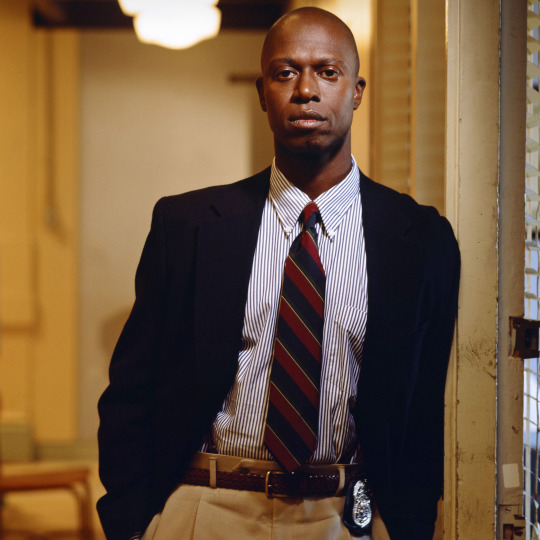
The career of the actor Andre Braugher, who has died of lung cancer aged 61, was benchmarked by two performances in police dramas a generation apart. In the groundbreaking drama Homicide: Life on the Street, from 1993 until 1999, he played Detective Frank Pembleton, whose drive immediately made him the anchor of an impressive ensemble cast led by Yaphet Kotto and Ned Beatty. He drew a younger audience with the comedy Brooklyn Nine-Nine (2013-21) as Captain Ray Holt, who takes over a chaotic homicide squad and whose intensity again makes him the heart of the show.
Braugher’s deep, resonant voice and seemingly effortless control drew the respect of all he worked with. David Simon, creator of Homicide and The Wire, said: “I’ve worked with a lot of wonderful actors. I’ll never work with one better.” His classical training, at the Juilliard School in New York, made him a regular at the Public Theater’s Shakespeare in the Park, and indeed his portrayal of Henry V in 1996 won him an Obie (the off-Broadway equivalent of the Tony awards).
He brought the projection of the stage to the small screen. Pembleton was the master of “the Box”, or the interrogation room. He explained to his rookie partner in Homicide (played by Kyle Secor), it was “salesmanship … as silver tongued and thieving as ever moved used cars, Florida swamp land or Bibles. But what I am selling is a long prison sentence.” He dominated those small scenes, but the episode Subway, with Vincent D’Onofrio as a character pushed between subway trains, who will die once the trains are separated, was a two-hander whose intensity might have come from the stage of Beckett, Pinter or Mamet.
In Brooklyn Nine-Nine, as Holt, he played it straight in two senses. The adage of comedy being funniest when played straight gained resonance from Braugher’s ability to show the audience with a gesture or line-reading that he, like you, got the joke. But Holt is also gay. His gayness is never an issue, except as motivation for his progress within the police. It was as if Pembleton were stepping into Kotto’s “Gee” Giardello, a black man with an Italian father who was determined to rise in a white-dominated department.
This drive reflected Braugher’s own background. In the tough neighbourhood of Austin, on Chicago’s West Side, both his parents worked for the government; his father, Floyd, was a heavy equipment operator for the state of Illinois, and his mother, Sally, worked for the US Postal Service. He recalled he might have “pretended I was hard and tough and not square”, but he won scholarships to the Jesuit St Ignatius College prep and then to study mathematics at Stanford University, California. After walking into a student production of Hamlet, and playing Claudius, he decided he wanted to act.
Another scholarship took him to Juilliard. He graduated in 1988 and almost immediately was cast in a TV revival of Kojak, as his assistant. His first film role came in Glory (1989); he was so impressive as the educated Thomas Searles, forced to serve as a private soldier in the all-black regiment commanded by his white friend, that Hollywood came calling, but the parts were standard stereotyical roles. His father had questioned how a black actor would make a living, and Braugher later explained: “I’d rather not work than do a part I’m ashamed of.”
He played the lead in a TV movie, The Court-Martial of Jackie Robinson (1990), playing Robinson, the first African-American player in major league baseball, who earlier in the 1940s, as a US army lieutenant, had refused to ride in the back of a segregated bus; and appeared in another TV film, The Tuskegee Airmen (1995). He was an egotistical actor in Spike Lee’s Get On the Bus (1996), about the Million Man March on Washington DC the year before. In 1998 he won his first Emmy award for playing Pembleton; he was nominated 11 times, and won his second in 2006 for his role in the miniseries Thief.
After Homicide, he starred as a doctor in Gideon’s Crossing (2000-01), as a cop in Hack (2002-04), as a car dealer in the comedy-drama Men of a Certain Age (2009-11) and as the captain of a submarine which goes on the run after he refuses to obey orders to fire nuclear missiles in Last Resort (2012-13). He had another series of remarkable two-handers in a recurring role as Hugh Laurie’s psychiatrist in House, was a defense attorney in episodes of Law and Order: Special Victims Unit, and voiced Governor Woodchuck Coodchuck-Berkowitz in the animated comedy BoJack Horseman.
He made the most of supporting roles in films such as Primal Fear (as Richard Gere’s investigator), Poseidon (captain of the sinking liner), Salt (as the US secretary of defense) and most notably as a New York Times editor in She Said (2022), covering the Harvey Weinstein scandal. He also starred in 10,000 Black Men Named George (2002), the story of the unionisation of Pullman railway porters, who were always called “George” by passengers.
Braugher admitted that his career “could have been larger, but it would have been at the expense of my own life”. He lived in suburban New Jersey with his wife, the actor Ami Brabson (who played Pembleton’s wife in Homicide). He said he wanted his three sons, Michael, Isaiah and John Wesley, raised in a “true context”, away from being a movie star’s offspring in Hollywood.
He is survived by his wife and sons, his brother, Charles, and his mother.
🔔 Andre Keith Braugher, actor, born 1 July 1962; died 11 December 2023
Daily inspiration. Discover more photos at Just for Books…?
14 notes
·
View notes
Text
Alright, Spring Training today is Yankees v Pirates in Bradenton.
After losing 8-7 to a Tigers walk off home run yesterday, they're gonna win today!!
Let's go Buccos!
3 notes
·
View notes
Text
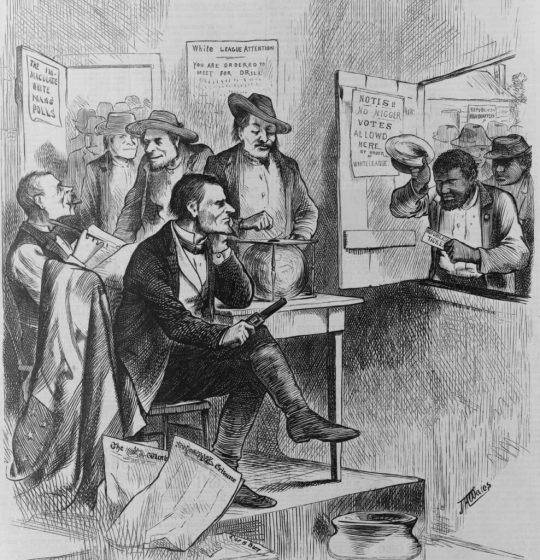
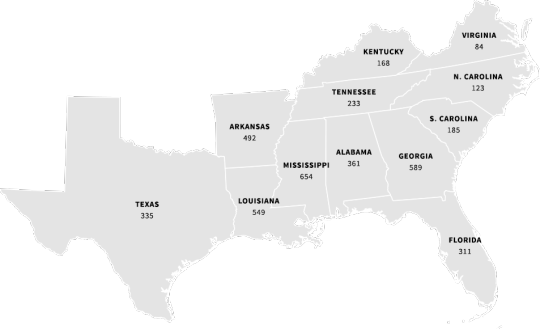
Land taken from African Americans through trickery, violence and murder
For generations, African American families passed down the tales in uneasy whispers: "They stole our land."
These were family secrets shared after the children fell asleep, after neighbors turned down the lamps -- old stories locked in fear and shame.
Some of those whispered bits of oral history, it turns out, are true.
In an 18-month investigation, The Associated Press documented a pattern in which African Americans were cheated out of their land or driven from it through intimidation, violence and even murder.
In some cases, government officials approved the land takings; in others, they took part in them. The earliest occurred before the Civil War; others are being litigated today.
Some of the land taken from African families has become a country club in Virginia, oil fields in Mississippi, a major-league baseball spring training facility in Florida.
The United States has a long history of bitter, often violent land disputes, from claim jumping in the gold fields to range wars in the old West to broken treaties with American Indians. Poor European landowners, too, were sometimes treated unfairly, pressured to sell out at rock-bottom prices by railroads and lumber and mining companies.

The fate of African American landowners has been an overlooked part of this story.
The AP -- in an investigation that included interviews with more than 1,000 people and the examination of tens of thousands of public records in county courthouses and state and federal archives -- documented 107 land takings in 13 Southern and border states.
In those cases alone, 406 African American landowners lost more than 24,000 acres of farm and timber land plus 85 smaller properties, including stores and city lots. Today, virtually all of this property, valued at tens of millions of dollars, is owned by Europeans or by corporations.
Properties taken from Africans were often small -- a 40-acre farm, a general store, a modest house. But the losses were devastating to families struggling to overcome the legacy of slavery. In the agrarian South, landownership was the ladder to respect and prosperity -- the means to building economic security and passing wealth on to the next generation. When African American families lost their land, they lost all of this.
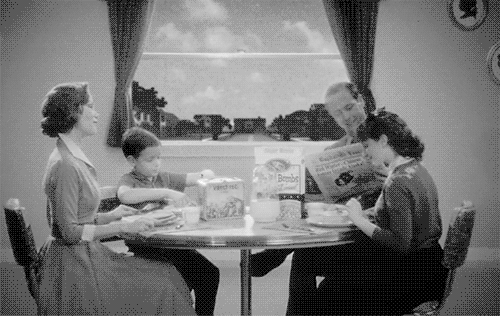
"When they steal your land, they steal your future," said Stephanie Hagans, 40, of Atlanta, who has been researching how her great-grandmother, Ablow Weddington Stewart, lost 35 acres in Matthews, N.C. A European lawyer foreclosed on Stewart in 1942 after he refused to allow her to finish paying off a $540 debt, witnesses told the AP.
"How different would our lives be," Hagans asked, "if we'd had the opportunities, the pride that land brings?"
No one knows how many African American families have been unfairly stripped of their land, but there are indications of extensive loss.
Besides the 107 cases the AP documented, reporters found evidence of scores of other land takings that could not be fully verified because of gaps or inconsistencies in the public record. Thousands of additional reports of land takings from African American families remain uninvestigated.
Two thousand have been collected in recent years by the Penn Center on St. Helena Island, S.C., an educational institution established for freed slaves during the Civil War. The Land Loss Prevention Project, a group of lawyers in Durham, N.C., who represent blacks in land disputes, said it receives new reports daily. And Heather Gray of the Federation of Southern Cooperatives in Atlanta said her organization has "file cabinets full of complaints."
AP's findings "are just the tip of one of the biggest crimes of this country's history," said Ray Winbush, director of Fisk University's Institute of Race Relations.
Some examples of land takings documented by the AP:
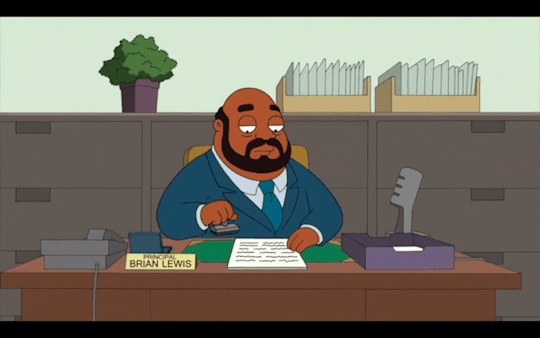
After midnight on Oct. 4, 1908, 50 hooded European men surrounded the home of a African farmer in Hickman, Ky., and ordered him to come out for a whipping. When David Walker refused and shot at them instead, the mob poured coal oil on his house and set it afire, according to contemporary newspaper accounts. Pleading for mercy, Walker ran out the front door, followed by four screaming children and his wife, carrying a baby in her arms. The mob shot them all, wounding three children and killing the others. Walker's oldest son never escaped the burning house. No one was ever charged with the killings, and the surviving children were deprived of the farm their father died defending. Land records show that Walker's 2 1/2-acre farm was simply folded into the property of a white neighbor. The neighbor soon sold it to another man, whose daughter owns the undeveloped land today.In the 1950s and 1960s, a Chevrolet dealer in Holmes County, Miss., acquired hundreds of acres from African American farmers by foreclosing on small loans for farm equipment and pickup trucks. Norman Weathersby, then the only dealer in the area, required the farmers to put up their land as security for the loans, county residents who dealt with him said. And the equipment he sold them, they said, often broke down shortly thereafter. Weathersby's friend, William E. Strider, ran the local Farmers Home Administration -- the credit lifeline for many Southern farmers. Area residents, including Erma Russell, 81, said Strider, now dead, was often slow in releasing farm operating loans to Africans. When cash-poor farmers missed payments owed to Weathersby, he took their land. The AP documented eight cases in which Weathersby acquired African-owned farms this way. When he died in 1973, he left more than 700 acres of this land to his family, according to estate papers, deeds and court records.In 1964, the state of Alabama sued Lemon Williams and Lawrence Hudson, claiming the cousins had no right to two 40-acre farms their family had worked in Sweet Water, Ala., for nearly a century. The land, officials contended, belonged to the state. Circuit Judge Emmett F. Hildreth urged the state to drop its suit, declaring it would result in "a severe injustice." But when the state refused, saying it wanted income from timber on the land, the judge ruled against the family. Today, the land lies empty; the state recently opened some of it to logging. The state's internal memos and letters on the case are peppered with references to the family's race.
In the same courthouse where the case was heard, the AP located deeds and tax records documenting that the family had owned the land since an ancestor bought the property on Jan. 3, 1874. Surviving records also show the family paid property taxes on the farms from the mid-1950s until the land was taken.
AP reporters tracked the land cases by reviewing deeds, mortgages, tax records, estate papers, court proceedings, surveyor maps, oil and gas leases, marriage records, census listings, birth records, death certificates and Freedmen's Bureau archives. Additional documents, including FBI files and Farmers Home Administration records, were obtained through the Freedom of Information Act.
The AP interviewed black families that lost land, as well as lawyers, title searchers, historians, appraisers, genealogists, surveyors, land activists, and local, state and federal officials.
The AP also talked to current owners of the land, nearly all of whom acquired the properties years after the land takings occurred. Most said they knew little about the history of their land. When told about it, most expressed regret.
Weathersby's son, John, 62, who now runs the dealership in Indianola, Miss., said he had little direct knowledge about his father's business affairs. However, he said he was sure his father never would have sold defective vehicles and that he always treated people fairly.
Alabama Gov. Don Siegelman examined the state's files on the Sweet Water case after an inquiry from the AP. He said he found them "disturbing" and has asked the state attorney general to review the matter.
"What I have asked the attorney general to do," he said, "is look not only at the letter of the law but at what is fair and right."
The land takings are part of a larger picture -- a 91-year decline in African American landownership in America.
In 1910, African Americans owned more farmland than at any time before or since -- at least 15 million acres. Nearly all of it was in the South, largely in Mississippi, Alabama and the Carolinas, according to the U.S. Agricultural Census. Today, Africans own only 1.1 million of the country's more than 1 billion acres of arable land. They are part owners of another 1.07 million acres.
The number of European American farmers has declined over the last century, too, as economic trends have concentrated land in fewer, often corporate, hands. However, African American ownership has declined 2 1/2 times faster than white ownership, the U.S. Civil Rights Commission noted in a 1982 report, the last comprehensive federal study on the trend.
The decline in African American landownership had a number of causes, including the discriminatory lending practices of the Farmers Home Administration and the migration of Africans from the rural South to industrial centers in the North and West.
However, the land takings also contributed. In the decades between Reconstruction and the civil rights struggle, black families were powerless to prevent them, said Stuart E. Tolnay, a University of Washington sociologist and co-author of a book on lynchings. In an era when African Americans could not drink from the same water fountains as European and African men were lynched for whistling at white women, few Africans dared to challenge Europeans. Those who did could rarely find lawyers to take their cases or judges who would give them a fair hearing.
The Rev. Isaac Simmons was an exception. When his land was taken, he found a lawyer and tried to fight back.
In 1942, his 141-acre farm in Amite County, Miss., was sold for nonpayment of taxes, property records show. The farm, for which his father had paid $302 in 1887, was bought by a European man for $180.
Only partial, tattered tax records for the period exist today in the county courthouse; but they are enough to show that tax payments on at least part of the property were current when the land was taken.
Simmons hired a lawyer in February 1944 and filed suit to get his land back. On March 26, a group of Europeans paid Simmons a visit.
The minister's daughter, Laura Lee Houston, now 74, recently recalled her terror as she stood with her month-old baby in her arms and watched the men drag Simmons away. "I screamed and hollered so loud," she said. "They came toward me and I ran down in the woods."
The Europeans then grabbed Simmons' son, Eldridge, from his house and drove the two men to a lonely road.
"Two of them kept beating me," Eldridge Simmons later told the National Association for the Advancement of Colored People. "They kept telling me that my father and I were 'smart niggers' for going to see a lawyer."
Simmons, who has since died, said his captors gave him 10 days to leave town and told his father to start running. Later that day, the minister's body turned up with three gunshot wounds in the back, The McComb Enterprise newspaper reported at the time.
Today, the Simmons land -- thick with timber and used for hunting -- is privately owned and is assessed at $33,660. (Officials assess property for tax purposes, and the valuation is usually less than its market value.)
Over the past 20 years, a handful of African families have sued to regain their ancestral lands. State courts, however, have dismissed their cases on grounds that statutes of limitations had expired.
A group of attorneys led by Harvard University law professor Charles J. Ogletree has been making inquries recently about land takings. The group has announced its intention to file a national class-action lawsuit in pursuit of reparations for slavery and racial discrimination. However, some legal experts say redress for many land takings may not be possible unless laws are changed.
As the acres slipped away, so did treasured pieces of family history -- cabins crafted by a grandfather's hand, family graves in shaded groves.
But "the home place" meant more than just that. Many Africans have found it "very difficult to transfer wealth from one generation to the next," because they had trouble holding onto land, said Paula Giddings, a history professor at Duke University.
The Espy family in Vero Beach, Fla., lost its heritage in 1942, when the U.S. government seized its land through eminent domain to build an airfield. Government agencies frequently take land this way for public purposes under rules that require fair compensation for the owners.
In Vero Beach, however, the Navy appraised the Espys' 147 acres, which included a 30-acre fruit grove, two houses and 40 house lots, at $8,000, according to court records. The Espys sued, and an all-white jury awarded them $13,000. That amounted to one-sixth of the price per acre that the Navy paid European neighbors for similar land with fewer improvements, records show.
After World War II, the Navy gave the airfield to the city of Vero Beach. Ignoring the Espys' plea to buy back their land, the city sold part of it, at $1,500 an acre, to the Los Angeles Dodgers in 1965 as a spring training facility.
In 1999, the former Navy land, with parts of Dodgertown and a municipal airport, was assessed at $6.19 million. Sixty percent of that land once belonged to the Espys. The team sold its property to Indian River County for $10 million in August, according to Craig Callan, a Dodgers official.
The true extent of land takings from African families will never be known because of gaps in property and tax records in many rural Southern counties. The AP found crumbling tax records, deed books with pages torn from them, file folders with documents missing, and records that had been crudely altered.
In Jackson Parish, La., 40 years of moldy, gnawed tax and mortgage records were piled in a cellar behind a roll of Christmas lights and a wooden reindeer. In Yazoo County, Miss., volumes of tax and deed records filled a classroom in an abandoned school, the papers coated with white dust from a falling ceiling. The AP retrieved dozens of documents that custodians said were earmarked for shredders or landfills.
The AP also found that about a third of the county courthouses in Southern and border states have burned -- some more than once -- since the Civil War. Some of the fires were deliberately set.
On the night of Sept. 10, 1932, for example, 15 Europeans torched the courthouse in Paulding, Miss., where property records for the eastern half of Jasper County, then predominantly African, were stored. Records for the predominantly white western half of the county were safe in another courthouse miles away.
The door to the Paulding courthouse's safe, which protected the records, had been locked the night before, the Jasper County News reported at the time. The next morning, the safe was found open, most of the records reduced to ashes.
Suddenly, it was unclear who owned a big piece of eastern Jasper County.
Even before the courthouse fire, landownership in Jasper County was contentious. According to historical accounts, the Ku Klux Klan, resentful that African were buying and profiting from land, had been attacking African-owned farms, burning houses, lynching African farmers and chasing African American landowners away.
The Masonite Corp., a wood products company, was one of the largest landowners in the area. Because most of the land records had been destroyed, the company went to court in December 1937 to clear its title. Masonite believed it owned 9,581 acres and said in court papers that it had been unable to locate anyone with a rival claim to the land.
A month later, the court ruled the company had clear title to the land, which has since yielded millions of dollars in natural gas, timber and oil, according to state records.
From the few property records that remain, the AP was able to document that at least 204.5 of those acres had been acquired by Masonite after African American owners were driven off by the Klan. At least 850,000 barrels of oil have been pumped from this property, according to state oil and gas board records and figures from the Petroleum Technology Transfer Council, an industry group.
Today, the land is owned by International Paper Corp., which acquired Masonite in 1988. Jenny Boardman, a company spokeswoman, said International Paper had been unaware of the "tragic" history of the land and was concerned about AP's findings.
"This is probably part of a much larger, public debate about whether there should be restitution for people who have been harmed in the past," she said. "And by virtue of the fact that we now own these lands, we should be part of that discussion."
Even when Southern courthouses remained standing, mistrust and fear of white authority long kept Africans away from record rooms, where documents often were segregated into "white" and "colored." Many elderly Africans say they still remember how they were snubbed by court clerks, spat upon and even struck.
Today, however, fear and shame have given way to pride. Interest in genealogy among African families is surging, and some African whispered stories.
"People are out there wondering: What ever happened to Grandma's land?" said Loretta Carter Hanes, 75, a retired genealogist. "They knew that their grandparents shed a lot of blood and tears to get it."
Bryan Logan, a 55-year-old sports writer from Washington, D.C., was researching his heritage when he uncovered a connection to 264 acres of riverfront property in Richmond, Va.
Today, the land is Willow Oaks, an almost exclusively European American country club with an assessed value of $2.94 million. But in the 1850s, it was a corn-and-wheat plantation worked by the Howlett slaves -- Logan's ancestors.
Their owner, Thomas Howlett, directed in his will that his 15 slaves be freed, that his plantation be sold and that the slaves receive the proceeds. When he died in 1856, his European relatives challenged the will, but two courts upheld it.
Yet the freed slaves never got a penny.
Benjamin Hatcher, the executor of the estate, simply took over the plantation, court records show. He cleared the timber and mined the stone, providing granite for the Navy and War Department buildings in Washington and the capitol in Richmond, according to records in the National Archives.
When the Civil War ended in 1865, the former slaves complained to the occupying Union Army, which ordered Virginia courts to investigate.
Hatcher testified that he had sold the plantation in 1862 -- apparently to his son, Thomas -- but had not given the proceeds to the former slaves. Instead, court papers show, the proceeds were invested on their behalf in Confederate War Bonds. There is nothing in the public record to suggest the former slaves wanted their money used to support the Southern war effort.
Moreover, the bonds were purchased in the former slaves' names in 1864 -- a dubious investment at best in the fourth year of the war. Within months, Union armies were marching on Atlanta and Richmond, and the bonds were worthless pieces of paper.
The Africans insisted they were never given even that, but in 1871, Virginia's highest court ruled that Hatcher was innocent of wrongdoing and that the former slaves were owed nothing.
The following year, the plantation was broken up and sold at a public auction. Hatcher's son received the proceeds, county records show. In the 1930s, a Richmond businessman cobbled the estate back together; he sold it to Willow Oaks Corp. in 1955 for an unspecified amount.
"I don't hold anything against Willow Oaks," Logan said. "But how Virginia's courts acted, how they allowed the land to be stolen -- it goes against everything America stands for."
#afrakan#african#kemetic dreams#africans#afrakans#european american#european#europeans#land grab#land
13 notes
·
View notes